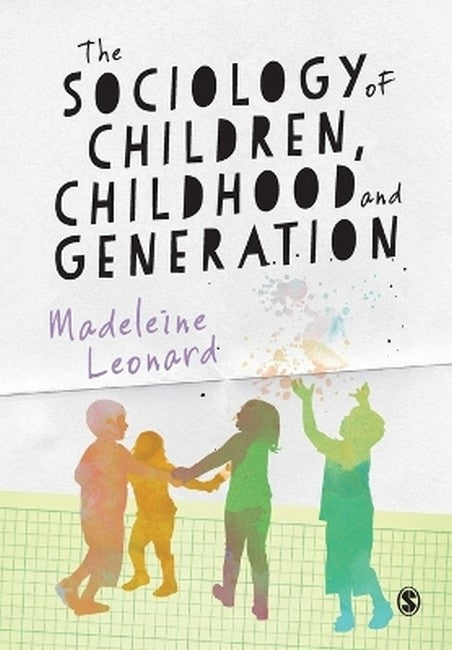Madeleine Leonard is a Professor of Sociology at Queen's University Belfast. Her main research interest is in teenagers' experiences of growing up in politically sensitive societies, and she has carried out research into the perceptions and experiences of Catholic and Protestant teenagers living in interface areas in North Belfast. She has recently extended this research interest to Cyprus where she has carried out research on Greek Cypriot and Turkish Cypriot teenagers' attitudes and experiences of growing up in the divided city of Nicosia. She has recently completed research (2010) on teenagers' perceptions and experiences of Belfast as a 'shared city' as part of an Economic and Social Research Council (ESRC) project 'Conflict in Cities and the Contested State'. She has used a range of research methodologies including writing exercises, maps, photo-elicitation, focus-group interviews and walk-along interviews.
Request Academic Copy
Please copy the ISBN for submitting review copy form
Description
Chapter 1: Introduction Chapter 2: Becoming and Being - Developments in the Sociology of Childhood Chapter 3: Macro Childhoods - Prioritising Structure Chapter 4: Micro Childhoods - Prioritising Agency Chapter 5: From Rights to Citizenship - Transformations and Constraints Chapter 6: Bridging Structure and Agency - Bringing in Inter-generagency and Intra-generagency Chapter 7: Conclusion - Blurred Boundaries
Leonard's The Sociology of Children, Childhood and Generation offers a thorough and up to date critical review of current debates in the sociology of childhood. Both those new to the field and more seasoned scholars will find much useful insight and food for thought in this book. Leonard's introduction of generagency (and its subdivisions, inter- and intra-generagency) provides a useful and productive conceptual tool for theorizing the interdependent relationship between generation and agency. The book makes a clear contribution to the sociology of childhood and to Childhood Studies at large. -- Spyros Spyrou This is a lucid overview as well as an outstanding synthesis of the field of childhood sociology. Also, the book offers an original contribution to theorizing children's agency. -- Leena Alanen This book contributes to a more comprehensive framework for bridging childhood as a structural component of society and children as active agents. Indeed, agency is best viewed as relational and not as a possession of individuals. But how to conceptualize this is far from easy. In clearly written and coherently ordered chapters, Madeleine Leonard brings an informed state of the art to the reader's knowledge. Going through studies of children's everyday lives in the family, at work, in educational systems and during leisure time, she shows the ambiguity of the concept of agency, which has especially important consequences in the implementation of children's rights. The author also uncovers critical issues in the new sociology of childhood, like the limited micro-level changes that constitute most of the empirical proof of children's agency. Her call for more accurate conceptualizations going past an over-romanticized notion of childhood is relevantly answered by her own original developments, giving perspective to her former research. The focus on children's active influence in generational relationships help move beyond what is too often conceived of as dichomoties (adult/child, structure/agency). The concept of generagency illuminates agency as part of children's relationships with adults among them. This book addresses a large audience of readers and authors interested by unresolved tensions in theorising and understanding children and childhood. -- Professor Daniel Stoecklin Madeleine Leonard's excellent book highlights the most important issues and concepts in the debates of sociology of childhood in a clear and concise way, and without renouncing to portray their nuances. The book describes and explains the distinction and the connections between social structures and children's agency; it presents the controversial attempts to account for both the restrictions and the promotion of children's participation opportunities in relationships within the most important social contexts. In particular, the book introduces a new, remarkable concept: generagency (and its core dimensions); this is a welcome attempt to clarify the complexity of links among social structures, children's agency and generational relationships, as well as a useful theoretical tool for guiding empirical research on the heterogeneity of children's social lives. -- Professor Claudio Baraldi

